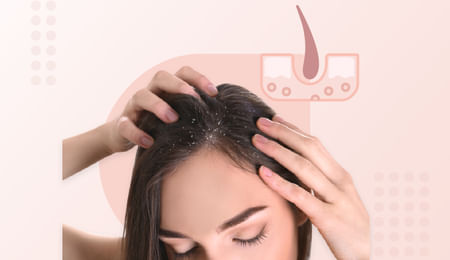Home Care For Dandruff
By making small changes in your lifestyle, you can get rid of dandruff effectively. Here are some effective ways to manage dandruff:
1. Brush your hair regularly
Brushing your hair ensures that blood circulation in your scalp is maintained. When you brush your hair, you remove dead cells from your head. But brushes with sharp ends will cause swelling and reddish patches in your scalp. Use a paddle brush. Brushes that have balls in the ends are even milder.
2. Avoid harsh shampoos
Certain chemicals in shampoos can lead to dry and irritable skin and precipitate itching and dandruff. Choose a mild herbal shampoo that is gentle on the hair and has a compatible pH balance.
3. Avoid styling tools
Heat and chemicals make your hair weak and damage the scalp. Straightening, blow-drying, and perming or any kind of artificial heat can cause irreparable damage and precipitate dandruff.
4. Pick an anti-dandruff shampoo
Some commonly recommended anti-dandruff shampoos available over the counter are Pyrithione zinc shampoos, Tar-based shampoos and Ketoconazole shampoo. It is recommended to use these shampoos daily however as dandruff gets better, alternate it with some other shampoo to avoid loss of hair health.
5. Eat healthy
Enrich your diet with optimum portions of green vegetables, fish oil, lean proteins and fruits. Include green leafy veggies such as broccoli, kale, lettuce to your daily diet. It encourages and improves your skin, hair, nails and overall health. Lean proteins (eggs, nuts, beans) help in building healthy skin and hair. So add these to your daily servings in some or the other form.
6. Get a little sun
Sunlight may be good for controlling dandruff. But because exposure to ultraviolet light damages your skin and increases your risk of skin cancer, don't sunbathe. Instead, just spend a little time outdoors. And be sure to wear sunscreen on your face and body.
